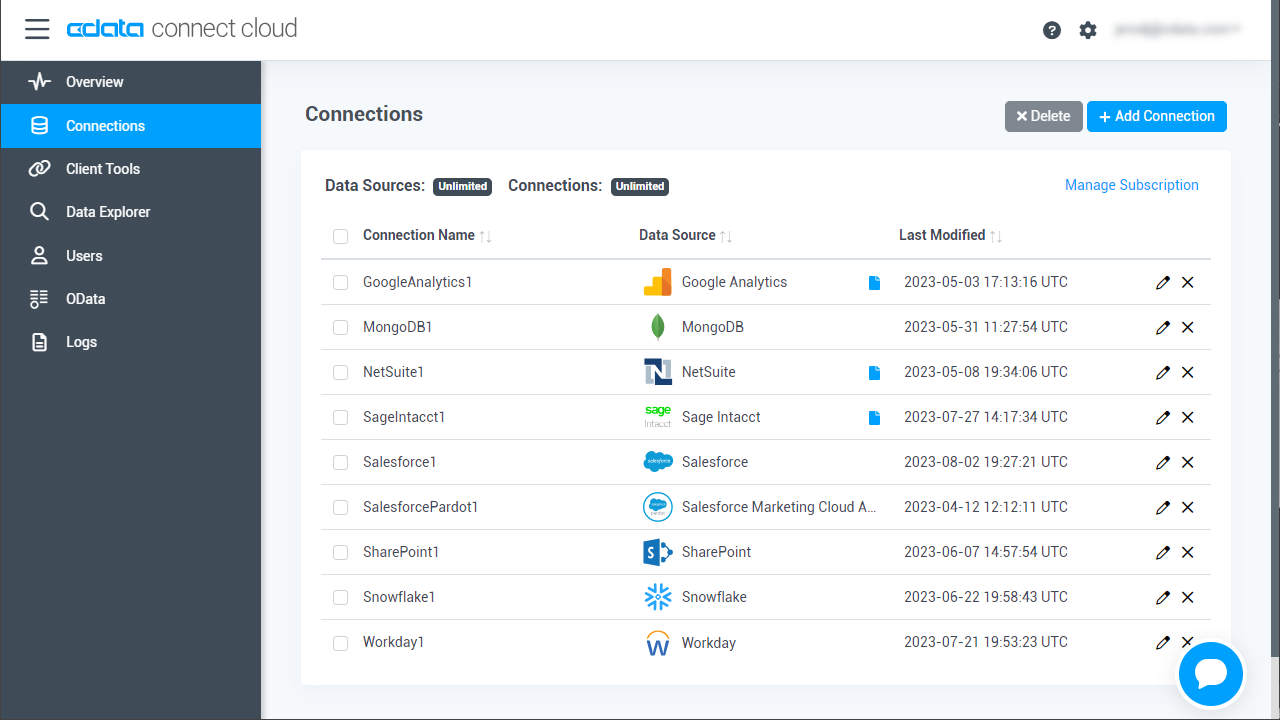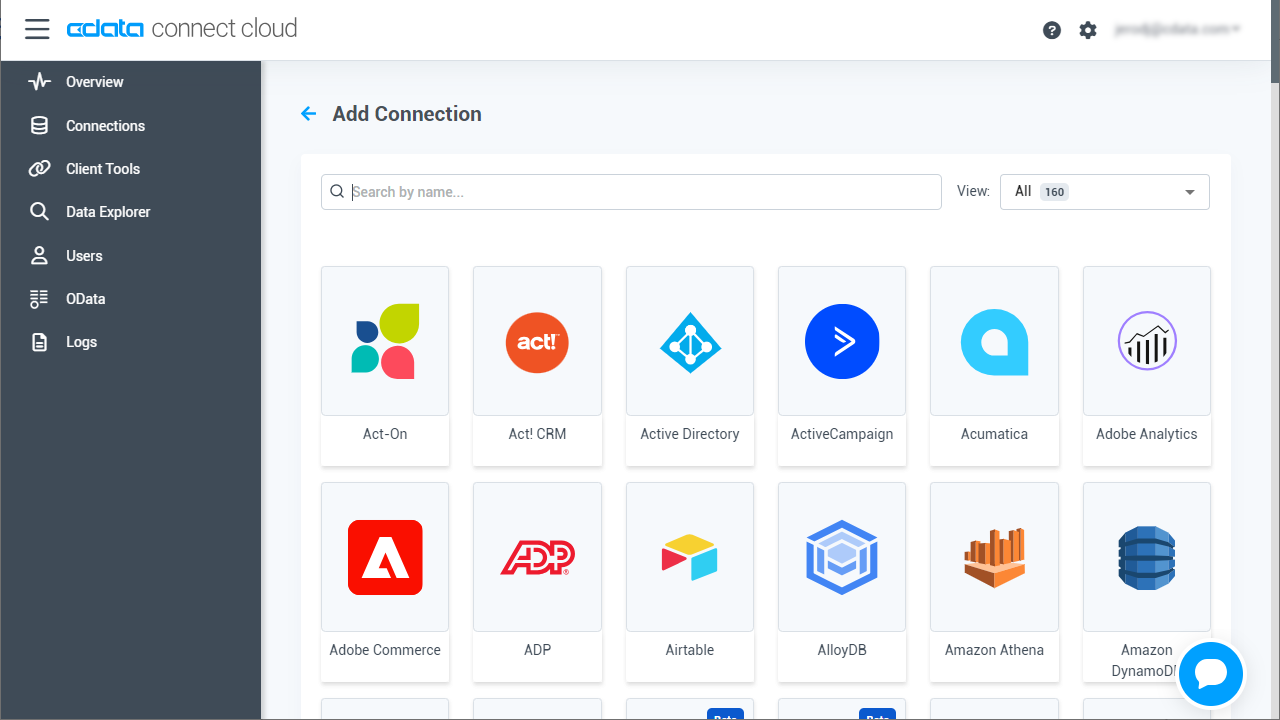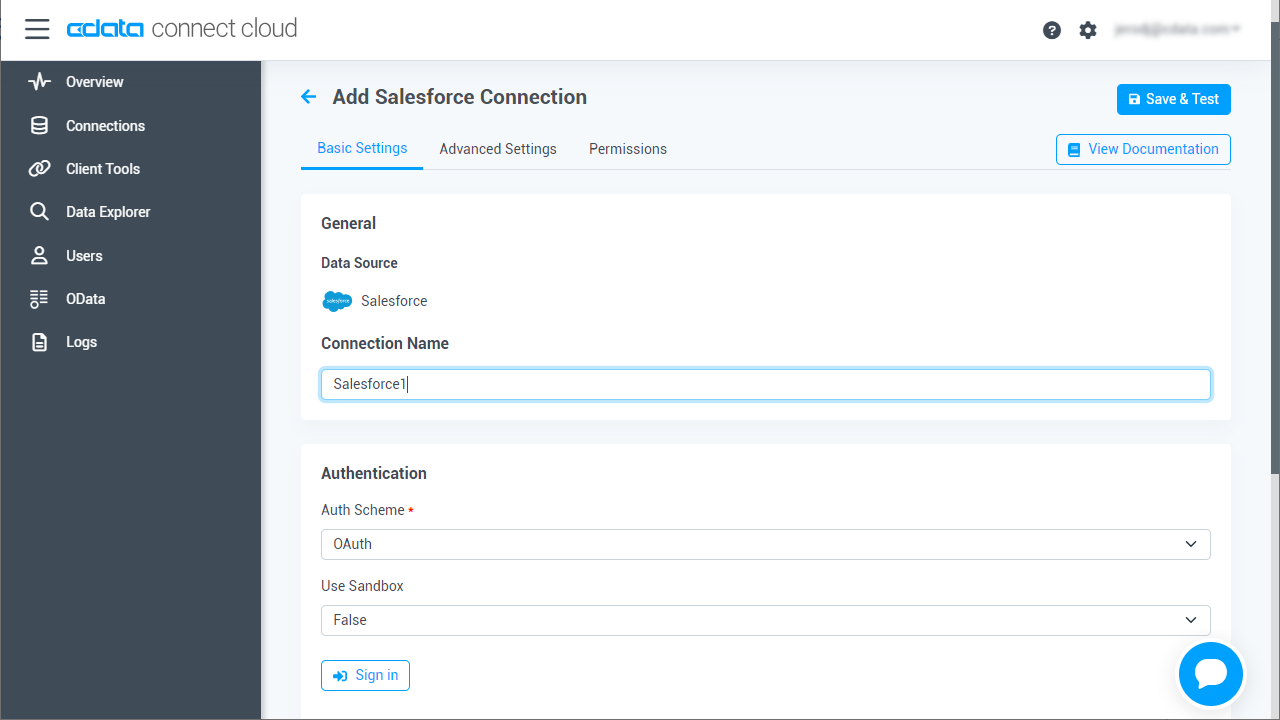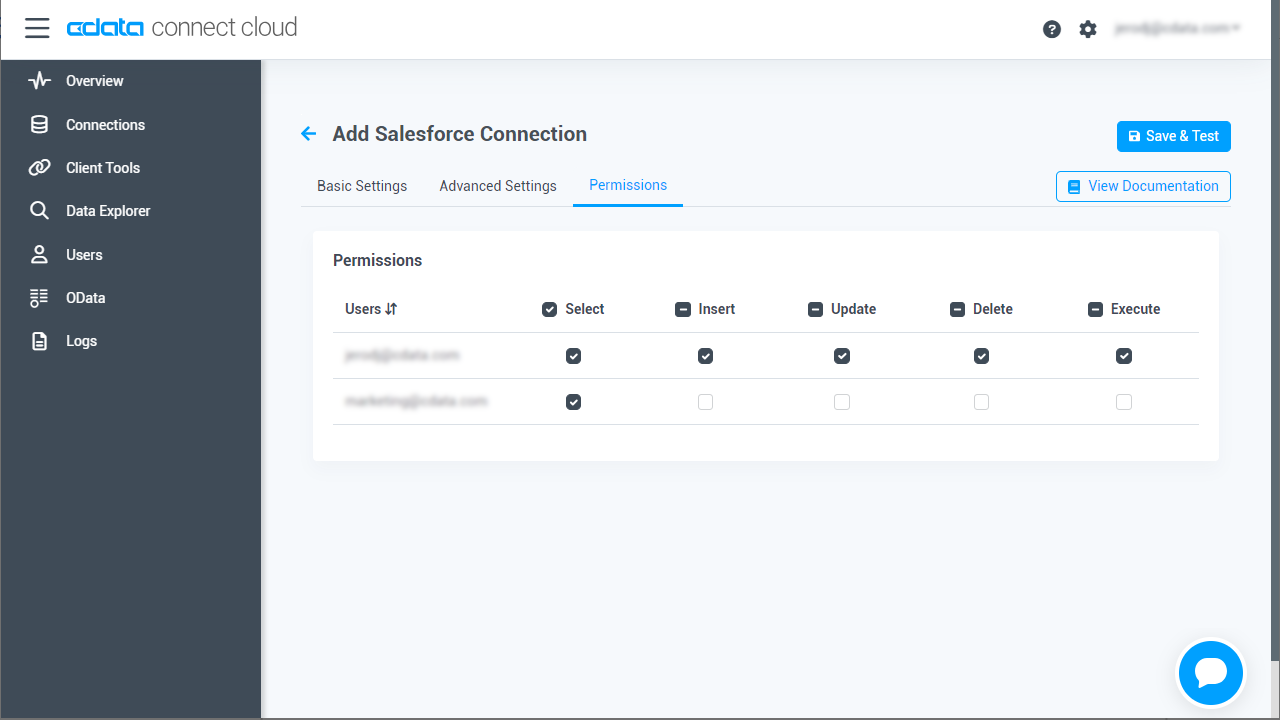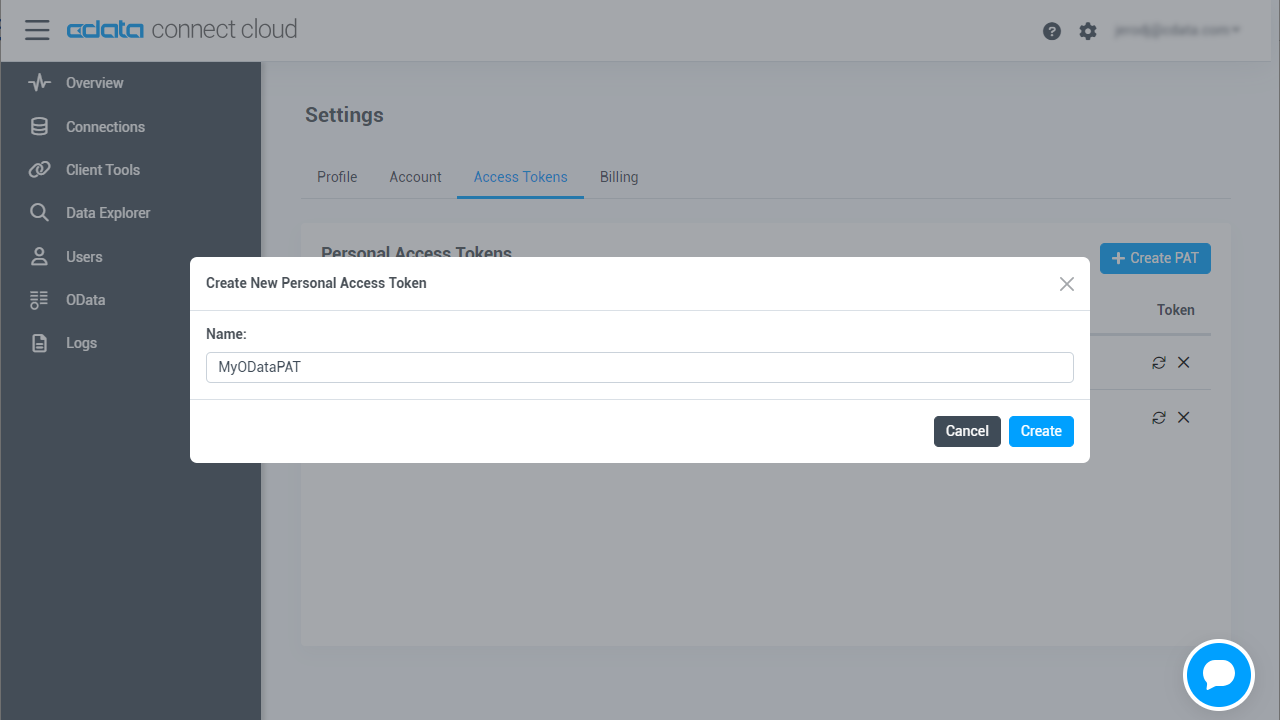Discover how a bimodal integration strategy can address the major data management challenges facing your organization today.
Get the Report →Query OData Services as a SQL Server Database in Node.js
Execute SQL Server queries against OData services from Node.js.
You can use CData Connect Cloud to query OData services through a SQL Server interface. Follow the procedure below to create a virtual database for OData in Connect Cloud and start querying using Node.js.
CData Connect Cloud provides a pure MySQL, cloud-to-cloud interface for OData, allowing you to easily query live OData services in Node.js — without replicating the data to a natively supported database. As you query data in Node.js, CData Connect Cloud pushes all supported SQL operations (filters, JOINs, etc) directly to OData, leveraging server-side processing to quickly return OData services.
Configure OData Connectivity for NodeJS
Connectivity to OData from NodeJS is made possible through CData Connect Cloud. To work with OData services from NodeJS, we start by creating and configuring a OData connection.
- Log into Connect Cloud, click Connections and click Add Connection
![Adding a Connection]()
- Select "OData" from the Add Connection panel
![Selecting a data source]()
-
Enter the necessary authentication properties to connect to OData.
The User and Password properties, under the Authentication section, must be set to valid OData user credentials. In addition, you will need to specify a URL to a valid OData server organization root or OData services file.
![Configuring a connection (Salesforce is shown)]()
- Click Create & Test
- Navigate to the Permissions tab in the Add OData Connection page and update the User-based permissions.
![Updating permissions]()
Add a Personal Access Token
If you are connecting from a service, application, platform, or framework that does not support OAuth authentication, you can create a Personal Access Token (PAT) to use for authentication. Best practices would dictate that you create a separate PAT for each service, to maintain granularity of access.
- Click on your username at the top right of the Connect Cloud app and click User Profile.
- On the User Profile page, scroll down to the Personal Access Tokens section and click Create PAT.
- Give your PAT a name and click Create.
![Creating a new PAT]()
- The personal access token is only visible at creation, so be sure to copy it and store it securely for future use.
With the connection configured, you are ready to connect to OData services from Node.js.
Query OData from Node.js
The following example shows how to define a connection and execute queries to OData with the SQL Server module. You will need the following information:
- server: tds.cdata.com
- port: 14333
- user: a Connect Cloud user (e.g. user@mydomain.com)
- password: the PAT for the above user
- database: The connection you configured for OData (OData1)
Connect to OData services and start executing queries with the code below:
var sql = require('mssql')
var config = {
server: 'tds.cdata.com',
port: 14333,
user: 'user@mydomain.com', //update me
password: 'CONNECT_USER_PAT', //update me
options: {
encrypt: true,
database: 'OData1'
}
}
sql.connect(config, err => {
if(err){
throw err ;
}
new sql.Request().query('SELECT * FROM Orders', (err, result) => {
console.dir(result)
})
});
sql.on('error', err => {
console.log("SQL Error: " ,err);
})






